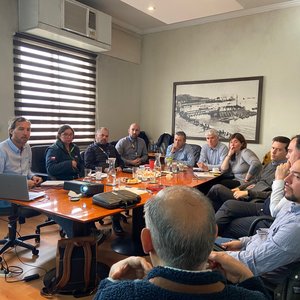The American Soybean Association’s (ASA) World Initiative for Soy in Human Health (WISHH) program and the Pakistan Fisheries Development Board have started the "FEEDing Pakistan" program. The U.S. Department of Agriculture (USDA) is supporting the three-year effort that will assist Pakistan in using U.S. soybean meal to make high-protein fish feeds.
Pakistan has an extensive system of fish farming but no commercial fish feeds are produced in the country. Soy-based fish foods are expected to allow the fish to grow 4-5 times faster. With approximately 187 million people, Pakistan is the sixth most populous country in the world. Therefore, FEEDing Pakistan is key for better nutrition and economic growth.
"FEEDing Pakistan represents another milestone for WISHH," said WISHH Chairman David Iverson, an Astoria, S.D. soybean grower. "Our farmer-led 2011-2015 strategic planning identified aquaculture and livestock development as an important opportunity where WISHH can fulfill its mission.
"USDA’s support of FEEDing Pakistan is good news for U.S. soybean farmers as well as Pakistan’s fish farmers and the many people there who seek higher-protein diets," Iverson said.
FEEDING Pakistan is a $1.5-million USDA Foreign Agricultural Service initiative that will use 25 metric tons of U.S. high-protein soybean meal for feeding trials in Pakistan. Other elements of the program include:
- Assessment of the Pakistani fish farming industry
-Feeding trials to demonstrate the results of fish feed formulations
- Cooperate with Kansas State University in training courses on fish feed manufacturing and best management as well as technical assistance to industry stakeholders, such as feed manufacturers and farmers.










